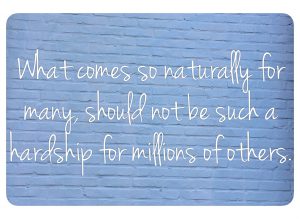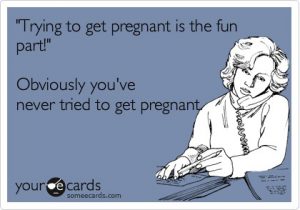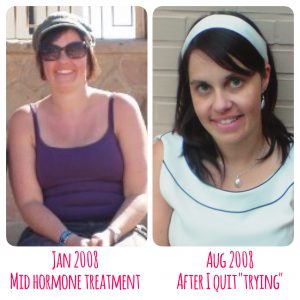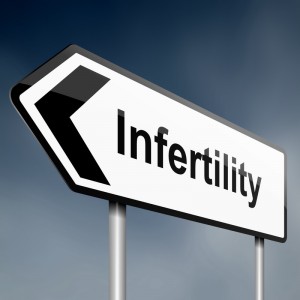Mother’s Day. Great for mothers, not so great for women struggling with infertility.
Becoming a mother wasn’t my life long dream.
While all my friends were having kids, I was enjoying my twenties, partying. I was always a late-bloomer. To be honest, it wasn’t until I turned 29, that I seriously started to contemplate having a child. And even then, only one would suffice. I knew I couldn’t handle more than one. But once I want something, I want it now. So, I decided I wanted a baby before I turned 30. I wasn’t going to be an “old” mother like my own mum at 34.
Well, 30 came and went, with a quarter-life crisis to boot, but no baby. Then 31 came and still no baby. I was getting worried, so I consulted a gynaecologist. Turned out I had PCOS. So I needed hormones (Clomid) to get my body baby-ready. After 2 months, I got an extreme stomach ache and some blood loss. Went to see the doc and he shrugged it off, saying: oh you must’ve had a small miscarriage. I didn’t know there was such a thing as a small miscarriage. Turns out, there isn’t. He just didn’t take it very seriously.
So I found myself a different doctor. For over 6 months I took pills, visited my doctor almost every week, but still nothing. He wanted me to start on hormone injections, but I wasn’t crazy about that idea.
Then he suggested GnRH Pulsatile Therapy with a hormone pump.
 I’d never heard of it. Basically, due to my PCOS, I was suffering from hypothalamic amenorrhoea, which meant my body didn’t produce the Gonadotropin-releasing hormone (GnRH).
I’d never heard of it. Basically, due to my PCOS, I was suffering from hypothalamic amenorrhoea, which meant my body didn’t produce the Gonadotropin-releasing hormone (GnRH).
The best way to explain what that means, is described on the website www.soft-infertility.ca: This hormone is transported to the pituitary through some specialized blood vessels where it causes some cells of the pituitary to produce FSH or LH. The FSH and LH are the hormones that cause the ovary to make and release follicles (eggs) and its hormones (estrogen and progesterone). The estrogen and progesterone feed back to the hypothalamus to in turn modify the production of GnRH and decrease the production of FSH. This is how cycling occurs. In hypothalamic amenorrhea, the hypothalamus is unable to make GnRH and so this axis cannot work.
A lot of words to describe that my body didn’t want me to get pregnant.
What the pump does is, it pumps the GnRH into your body at 90-120 minute intervals, making the hypothalamus believe you are actually producing the hormone. In any case, it’s like an insulin pump, you carry it around 24/7 and only take it off to take a quick shower or bath. Every week I had to go back to the hospital to get the needle replaced (for infections) and the pump refilled. And every 2nd and 3rd week of the cycle I got an ultrasound and/or blood test to see if it was working. As you can imagine, my emotions were all over the place. The shame of not being able to get pregnant in a normal way, the mood swings and weight gain (mostly water retention) from all the hormones, every time someone else announced they were pregnant I cried and cried, and of course the embarrassment of having to walk around with this pump attached to me all the time. I bought myself a cute cell phone bag and only wore jeans, so I could attach it to my pants. That way, at least, it looked like I was carrying a cell phone. But there are no pictures whatsoever of me and my pump, due to my shame.
But what I hated most of all was, when my eggs were “ready”, I was told to go home and make a baby…Nope, just…nope. It just doesn’t work like that.
 So after 6 months of having to go through that (I was now 32), they suggested IVF. But I wasn’t ready for that yet. So I opted for artificial insemination first. When that didn’t work, my doc suggested a laparoscopy, to see why none of the treatments were working. And it turns out on top of everything else, I also had endometriosis. Of course, why not. Anyway, it was removed and now I had the choice of either resuming “trying to conceive (TTC)”, or temporary menopause to let it heal. I chose the latter. I was sick of TTC. To be honest, I really didn’t want it anymore. If it wasn’t meant to be, then that was ok with me.
So after 6 months of having to go through that (I was now 32), they suggested IVF. But I wasn’t ready for that yet. So I opted for artificial insemination first. When that didn’t work, my doc suggested a laparoscopy, to see why none of the treatments were working. And it turns out on top of everything else, I also had endometriosis. Of course, why not. Anyway, it was removed and now I had the choice of either resuming “trying to conceive (TTC)”, or temporary menopause to let it heal. I chose the latter. I was sick of TTC. To be honest, I really didn’t want it anymore. If it wasn’t meant to be, then that was ok with me.
I thought I could handle a few hot flashes. Boy, was I wrong. For the next 4 months I was incredibly moody, had anxiety attacks, started crying every second day after I got the shot, had horrible insomnia, no energy and of course the hot flashes (in the middle of summer). I completely underestimated it.
After menopause was over, I claimed my life back.  I didn’t have to count the days until the next doctor’s visit anymore, got some hair extensions (because the hormone therapy had also made me lose a lot of hair), lost all the water and weight, started taking care of myself again and started living my life as I had done before, making big plans to move to London, as I had wanted to for 10 years. No more nagging voices asking me if I was pregnant yet, telling me to relax and it would happen. They were all well-meant, I know, but honestly: how can you relax when you’ve been trying to conceive for about 3 years?
I didn’t have to count the days until the next doctor’s visit anymore, got some hair extensions (because the hormone therapy had also made me lose a lot of hair), lost all the water and weight, started taking care of myself again and started living my life as I had done before, making big plans to move to London, as I had wanted to for 10 years. No more nagging voices asking me if I was pregnant yet, telling me to relax and it would happen. They were all well-meant, I know, but honestly: how can you relax when you’ve been trying to conceive for about 3 years?
And what do you know, a year and a half (!) later, I was pregnant, at 33!
Even now, people keep telling me that it was because I stopped stressing about it. Nope. It was because I’d had surgery to fix what was causing the problem. I didn’t even know I was pregnant until I went away for a weekend (9 weeks into the pregnancy) and some pharmacist in London asked me if I could be pregnant, after having been nauseous for about 2 weeks. Of course I couldn’t be, I replied. She had no idea what I had gone through. There was no way pregnancy was in the cards for me. I’d gotten over it, moved on, made other plans, didn’t even want it anymore. I found out on Christmas Eve and was in shock for quite a while.
Getting pregnant was one thing, being pregnant and becoming a mother, a whole other ballgame. But more about that later.

I know this is quite a long post, but I wanted to describe in detail what trying to conceive meant to me. If you are struggling with infertility, there are lots of blogs and forums out there to help you come in contact with others who are going through the same thing. Someone else’s struggle may help you through your own. Just know you are not alone, even though it feels that way.
When I was TTC, I wasn’t in the mood to share, so I didn’t look up any forums or blogs. My personal favourite blog about infertility right now, though, is Stirrup Queens. She also has a blogroll with the best blogs about specific cases of infertility. And if you need a laugh, this couple deals with their infertility in a hilarious way.

3 comments for “What to expect, when you’re not expecting”